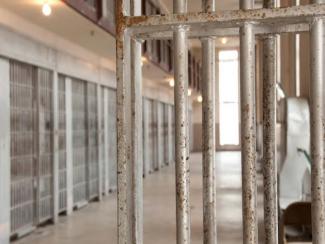
According to the Vera Institute of Justice, the jail incarceration rate in large cities is now actually lower than in most rural counties. This is a result of big cities pushing to decrease the size of their jails. So why are rural communities seeing the opposite?
Before 1980, just 36% of prisons were located in rural communities. Many of the rural communities housing prisons were economically challenged and in search of a growth industry. Challenges in farming, mining, timber work, and manufacturing made prisons an economic strategy for rural America in the 1980s.
Rural communities often struggle to provide services like education or healthcare and basic justice. The lack of these services often feeds people into the prison population, further growing the system.
Prisons are a leech on rural communities, not a beacon of light. They deplete investments in schools, libraries, and health clinics. They prevent the creation of job opportunities which will improve the economy of rural areas.
We can survive economically without prisons. A system that takes so much from us cannot truly give us economic hope. Improving the lives of people in rural communities is a better investment.